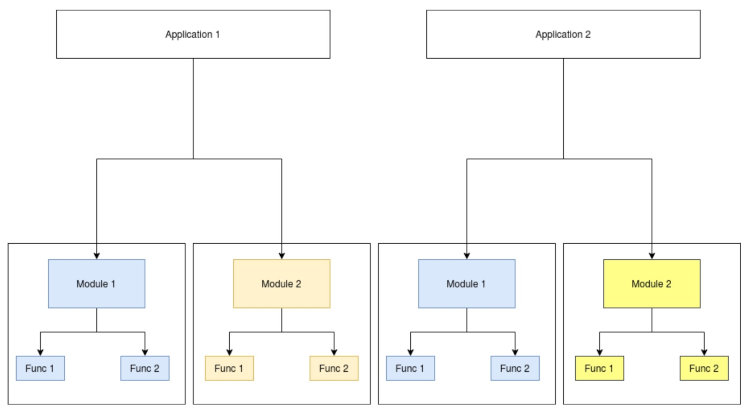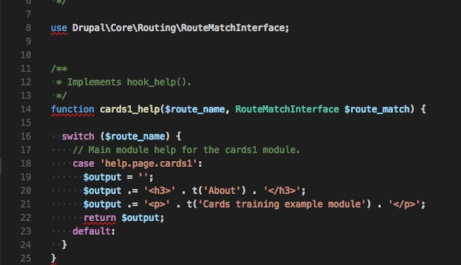Modular programming: increased value for our customers
Blog
Modular programming is widespread these days. But what is modular programming?
In this blog I will explain to you the basics of modular programming, some of the advantages and watch outs of modular programming and why we are convinced that modular programming results in an increased value for our customers.
What is modular programming?
Modular programming is a software development technique that goes back to the late 1960s and 1970s. As of the 1990s modular programming is considered to be widespread.
In a few words, modular programming is a development process of subdividing a computer program into separate, independent and interchangeable sub-programs (modules). Similar functions are grouped in the same module which improves e.g. the testability, maintainability and reusability by other applications.

Some of the advantages of modular programming
There are many advantages of modular programming. I am listing some of the advantages of modular programming:
- Modular programming allows to divide the development work between multiple developers working on different modules in an independent way. The developers can work on their module and they do not require an in-depth knowledge of every module of the application. This increases the overall efficiency of the programming work.
- Modular programming makes testing and debugging more efficient.
- Modular programming improves the maintainability of the developed software solution. If changes have to be applied to a module, only the affected subroutines have to be changed.
- With a well designed modular programming approach, less code has to be written and the scope of variables can be controlled in a more easy way.
- Modular programming makes versioning of the development more easy.
- Developed modules can be re-used for other applications.
- Modular programming makes the design/architecture of an application more easy and enhances the structure of the application.
Some of the watch outs of modular programming
Modular programming also comes with some watch outs:
- Although modular programming increases the overall efficiency of the development work, it might also require more time and it needs more memory.
- Ensuring the different modules are interacting seamlessly is not always an easy task and requires an ongoing focus. It is imperative that, although developers work on their module, they understand that they do not work on an island. Team collaboration and intense communication between the different developers is an absolute must in a modular programming approach. Properly written documentation, clear coding standards and proper naming conventions are required.
Modular programming: an increased value for our customers
Modular programming results in a more performant and better structured software application. Modules can be reused, the development process, debugging and testing are more efficient . Once released, the maintenance of the delivered software solution is also easier.
And that’s basically why we are convinced that modular programming results in an increased value for our customers.
You want to know more about modular programming and how we can implement it? Please do not hesitate to contact us.
Siddu Nagasiddeswara
Head of full stack development & established technologies @ Infanion




